Acting in Miami: “CSI” Casting Director Ellen Jacoby’s Inside Perspective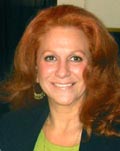 Ellen Jacoby is one of the best-known casting directors in the Southeastern US. With credits including Miami: CSI, The Truman Show, Flipper, There’s Something About Mary, True Lies, and The Birdcage, her talent for finding talent has earned her several distinguished kudos over the years, including the Casting Society of America’s coveted Artios Award in 1996, as well as Miami Metro Magazine’s “Woman of the Millennium Award†in 2000. She was appointed to the Florida Film Advisory Board during Gov. Bush’s tenure, and is a member of the Academy of Television Arts & Sciences and the Casting Society of America. Former Mayor Alex Daoud even once declared it “Ellen Jacoby Day†on Miami Beach. The champion backgammon player and former nightclub singer graciously took some time out from her busy casting schedule to sit down with us to share some candid reflections gleaned from her years of experience in local casting. Q: Thanks for being with us today. Your resume is immense! How did you first get into the casting business? Ellen: I had a friend and she opened up a company and she asked me if I wanted to go in on it with her, and I did. Then I ended up going on my own all together. Actually, I was born in Miami, number one…raised in New York and New Jersey, and than came down for vacations…moved back at 21, and have been here ever since. Shortly afterward, I became a casting director. I got very lucky. My first job was Miami Vice. It was Miami Vice, third season, so that helped establish me right off the bat.
Q: Do you enjoy it here, or have you ever been tempted to move to a larger market, like LA or New York? Ellen: Well…..I am in kind of a large market because I do the whole state and the Bahamas. I travel a lot, have done shows from Key West up to the panhandle, when I did The Truman Show, and the Bahamas. So it’s a pretty big market for me to handle as it is. And I kind of like that, because although I travel within the state, I stay local also within the state, so I know the talent pool within the state, which is…kind of fun.
Q: Is there more talent here than Orlando, or the other way around? Ellen: There probably was ….at one time. [Orlando] still maybe has a little bit more, but you know you can find talent living in Sarasota, and some in Jacksonville, I mean, there’s people all over. This is probably the largest concentration – in Miami – although the Orlando market, is, I understand, is [large], too. Q: As far as…work, would you say there’s more in Orlando or Miami? Ellen: Probably a little bit more in Miami, but you know with the studios and stuff up there, there’s a lot going on up there…and it’s really hard to look for the same models in Orlando that are in Miami. [The models for] commercials and print….those are in Miami. Q: Are there studios here locally? Ellen: Yeah, sure. The studios people are using….there’s the one down 36th St…the name escapes me…there’s Greenwich. A show I’m doing called Burn Notice, which is over at the Coconut Grove Convention Center, we have the whole area, and we’ve built our soundstages there. So, that turned out to be great. We don’t have the kind of soundstages they have in New York and LA, but we do have facilities, absolutely. We have several other smaller ones, too. (Here’s a list of soundstages in Miami.)
Q: In general, how would you say the acting scene differs here from Los Angeles or New York? Ellen: Well, what happens is when you start making it here, unless you have family or are retired, you usually aspire to go to New York or LA. It’s hard to keep you home. It’s hard to keep you here. So some actors will become bi-coastal. They’ll come here for the season, and go to LA for the LA season. Or they’ll run between New York and Miami, but we cast a lot of roles out of here, but we still bring in the stars – there are not that many star or even guest-starring roles – we do book some, but generally people have it in their mind that they’re safer with [talent from] LA or New York. Sometimes, they even are, but we keep trying to be more professional. Q: I’ve noticed that having been involved in the LA acting scene in the late 80’s and going back to it again in the early 2000’s, it used to seem a lot simpler – like just mailing out headshots and resumes, but now, you have to sign up with this website and that website, and get in a database, and pay these people – it just seemed a lot more complicated. Ellen: Yeah, it shouldn’t be. It shouldn’t be. The database of the major networks, what the casting directors require – I work personally – I work and I like Breakdown Services the best of all of them. And the agents that work with Breakdown Services have you there, so they can just submit you right to me from Breakdown Services – I open the page and my submissions are right there. And I can schedule the appointments, I can do everything through Breakdown Services. There is some competition for that, but I mean as far as being on this little website, that little website, and this other little website, I don’t think that’s necessary. If you’re on one of the major ones.
Q: Is film production increasing in the Miami area? Ellen: Well, I would think it’s probably going up a little bit lately, depending on the writer’s strike (laughs)…It’s probably hurting everybody. But invariably, Miami – and South Beach – offer something that’s unique to this country. And a lot of people like to come here. If they don’t do the whole movie here, they can do some of it here, because they can’t replicate it. It’s something that’s really wonderful and unique to Florida. Q: Does Florida offer tax incentives to draw in production from out of state like the ones that are currently in place in states like Louisiana? Ellen: They have tax incentives in place in Florida. We just have to stay competitive with the other states. Utah…and New Mexico….there are just so many states that have put in fabulous incentives. We do have incentives. We have a couple of little glitches that will hopefully get cleared up…you know, by the politicians who don’t really know this business, but hopefully, we can clear up those little glitches, but we do have good incentive programs. Q: Aside from the local agency submissions you get through Breakdown Services, how do you find new talent? Ellen: Through agents. I basically work through agents. Once in a while, if I’m looking to do a big search, I’ll do an open casting call, and do a lot of PR and get out there with the media, and you know, announce a big casting call, and once in a while I’ll find some special talent that way. But I rely on agents to call me and say, “Ah! I’ve got a terrific actor. You’ve got to read him. And I’ll say, “Okay! Great!†Q: Do you have any advice to offer someone who’s new in town on how to get their career started up? Ellen: I tell everybody …I say this all the time – to get an agent. Get a reputable agent. Do not spend a dime to be with that agent. It does not cost you anything. It’s against the law to charge to be with an agent. They only get a percentage of money from the paying jobs they get you.
Q: 10% over scale, is it? Ellen: Well, you’re talking union. Which of course, there is a governing body with the union agents that I support. The Screen Actors Guild [“SAG”], the actor’s union, and they have a 10% max, that’s how it works for union, but non-union generally charges something like 15. Print is a different world all together. And the print world is at 20. Q: And are most of the agencies here SAG-franchised agencies? Ellen: Most ? Um, there’s both… Q: And as for the agencies, without recommending one over the other, necessarily, what are the agencies that bring in the most people? Ellen: I use all of them. For example, I just did a TV series, and I just also did a movie. And the people that I booked were [from] all the agents sending me people. I have booked from almost every single agent. It’s not just one agent, you know, that really takes command. Every agent ends up booking. Q: How many agencies are there? Ellen: Oh, you need to do your homework! I don’t know how many SAG agencies there are. 20 something? Union and there’s many non-union? [For a list of area talent agencies, click here.] Q: Are there any common scams to avoid? Ellen: Well, you know, with non-union, you have to go there and make sure they don’t charge you anything and don’t try to sell you anything. With union, you know there’s a governing body, so union are probably generally going to be considered more reputable, but that’s not necessarily the case, but because there’s a governing body, it should be. And there’s union agents that specialize more in beauty, some specialize more in actors, so you just have to take an honest look at yourself, go meet people and when they do generals, see who you have a good rapport with. Unfortunately, we don’t have exclusivity [“exclusivity†means you can only have one agent – ed.] – I wish we did – but we’re starting to get into a little bit more of that. Exclusivity is important because that way I don’t get the same person submitted by every agent. But, while that’s the way it works, they need to have more than one agent right now, except for a handful, that, you know, will invariably book almost every movie. Q: But if you’re looking for, say, a character actor, you would go to a certain agent… Ellen: Exactly. Exactly. Some agents would have just pretty people and others would have more character actors. Q: Can you tell me the name of an agency that specializes more in character actors? Ellen: Well….there’s so many agents, I don’t want to name “an agency,†you know. Q: What are some of the better classes going on right now?
Ellen: We’re not like LA, so there aren’t really that many great classes going on. I keep saying I’m going to do one, because I just get so many requests. I constantly have to keep having to keep postponing them because I get work or go out of town – I’m also the resident casting director for the Tampa Bay Performing Arts Center. So, you know, like a few times a year I go up there and teach a class. I really haven’t had a chance to teach a class [locally]. Someone was asking me, I said I’ll do one in 2008, I promise! Q: Oh, the one on your website isn’t going on right now… Ellen: That was an old one. I have to update my website, which I can’t get into right now, because my server’s down. So what you see is what it is, and it’s been that way for about two weeks and I’m like livid. What I like to do is if people get in classes and ask me to monitor them, I will go and monitor them, and recommend them or not. I figure you just have to be careful and find out from other students who they’re learning something from. I see a lot of actors who can’t get jobs as actors, who are teachers, and, you know, that’s not what I would consider. But you know, there are a lot of great schools offering programs. So you really have to check….it’s like anything, you check it out… ahead of time.
Q: Where do you look to find what’s out there…? Ellen: There’s some great websites where you have chat logs of actors – there’s Florida Webzine [this website no longer exists—ed.] , there’s different websites. And talk to your agent, there’s teachers who like to come in from LA and do a class on a specific weekend, you know, I think it would behoove you to do your homework – as an actor. Q: I had a few problems in LA, because it seemed a lot of the agents were doing casting director seminars, agent nights at specific classes, and things of that nature, and they were pushing the seminars and other businesses they were working with… Ellen: Well, I’m a member of CSA, I take what I do seriously; I believe in doing the right thing. And we’re not allowed to do that. I’m not allowed to say, “Okay, I’m doing a show and giving a seminar. Come to my class.†There are casting directors out there that do that. And they purposely will put together a class while they’re casting a show. I don’t go that route. I mean, I’m a casting director first, and I think that’s the more professional way to be. Q: Yes, however some agents have sweetheart deals with photographers…and teachers… Ellen: Yeah. I think a lot of agents have sweetheart deals with photographers and that’s very common. .. you do not have to the photographer that the agent wants you to go to. If the agent does “in house†– they have their own photographer to come to their office to do pictures – I shy away from that, too. I think you go to the professional photographers, and find out what they charge and take a look at their work and pick. You just have to be a smart shopper like you would be…outside this industry. Q: Okay, on to the local theatre scene….If you’re a new actor, what are some of the theatre groups that might be good to get into?
Ellen: There’s a lot. You go on the web. You know, that’s your best tool now. The Internet is…everything is on there. There’s a lot of local community theatres here in the area…I don’t know how far you’re willing to travel, and there’s equity and there’s non-equity. And there are theatres, and there are good theatre actors down here. And there is work out there for them. And you do have to decide as an actor where and when you’re going to do which market. You know, we definitely have a season down here, so if you’re going to do theatre during our busy season down here, don’t expect to go out on auditions for film and television – because I can’t have that restriction. They’ll come in, and they’ll do a great job reading, and I’ll want to book them. “Ah, well, I have theatre on this day, this day… matinees this dayâ€â€¦.well, I can’t shoot a film around your theatre schedule, so you have to decide which medium is best for you which time of year, and then, you know, stick with it. Q: Okay…photographers….I guess you’re probably going to give me the same answer, “do your homework,” but are there any photographers that you could recommend off the top of your head…? Ellen: There are a few that I’d recommend…I’d hate to just say one and then I might forget another name, but what I would strongly suggest, is you go and you shop it, like you do anything else, you go to the photographer, you look at their work, you get a price. Take your time, go to the other photographers, narrow it down to two or three, you don’t have to go to who your agency recommends, so they can get a kickback or whatever it may be – go do the work. Go do the work. Go take a look at Paul Greco . Go take a look at Lynn Parks, and take a look – I understand, I haven’t seen his work – John Gertz is an actor – I understand he’s really gotten into this and he’s doing a great job. Go take a look at their work, find out their rates – see who’s work you like best for what you are. It’s that simple. I would rather talent do that than go in blind to someone who was recommended. That you hadn’t seen their work.
Q: What do you look for in a headshot? Ellen: Just….the demeanor. The pose. If it’s real posed and stiff, or it just looks friendly and…real. So long as it’s real and it looks like you, I’m okay with it. Q: What are there trends you’re seeing in headshots? More ¾ (body) shots? Ellen: I get those…I still get those. Q: More color shots? Ellen: Well, obviously there’s a lot more color, because it’s not cost-prohibitive, as it once was when black and white was standard. To have color headshots done was really outrageously expensive. Now, within this age of technology, it’s not that big a deal. So if you have a certain feature, green eyes or blue eyes, or red hair – or something – and you want to bring it out, it’s not that much more to do a color shoot on the other hand. I don’t think that your headshot is going to book you the job. You still have to get up there in front and act. Q: It might get you in the door… Ellen: It might. Although we understand not everybody looks like their headshot (laughing). I’m looking for actors who think it’s more important to have a resume to get in the door, but…that’s me. Q: My next question was about just that. What do you look for on a resume? Ellen: Well…if you’re union…if you’re not…if you’re in for a union job or not…and the work you’ve done. Theatre, television, any studying…and your special skills….I look at the whole thing.
Q: Does one weight more heavily than another? Theatre credits over film credits… Ellen: It depends on what the role’s for, really. Q: Extra work… In Los Angeles, for years, it was looked down upon. “Nobody’s going to take you seriously if you do extra work.†Do you find that that’s the case today, here, or are serious actors doing that also? Ellen: No, I don’t think serious actors are doing that. Once they’ve established themselves as SAG, we don’t have SAG extras in film and TV here. It’s all non-union. But I think if you’re looking to get in the business, it’s a way of being paid to learn the lesson, and see if you really like being on a set for at least 12 hours, and you make up your mind that, it gets in your blood or it doesn’t. So, it’s a stepping stone. I recommend it for everyone. ..and at the agency, some people, I think they should have to be extras once, just so they’ll know what they’re talking about! I think it’s a great experience. I don’t look down on people. If they’re good and they’re reliable I want to work them up the ladder.
I mean some local talent in Orlando was an extra for me once. She was an extra for me for the run of the show; we’d always change her look and veil her face, and stuff like that, and she’s starring on a TV show now. I mean, you know, you have to start somewhere, pay your dues, and you work yourself up. If you’re hungry and you’re generally an actor, and you don’t do extra work, but you’re not busy that day, then fine. I mean, SAG actors, I don’t expect to be non-union extras for $100 a day. I don’t expect it, and I don’t ask it. Q: Do you look at demo reels as much as headshots and resumes, or headshots and resumes more? Ellen: I think headshots and resumes are what most people have, that’s the agency submission. If someone has a good demo reel, professional demo reel, I’d be happy to have that, and look at it, and I could show it to producers or directors, especially if the person is travelling, you know, like a bi-coastal, kind of New York/Florida person, I would do that, and of course, in the age of technology, if I like a person from the headshot or the demo reel, I might ask them to get themselves on tape and email me a clip of my material. But, if it is a good, professional demo reel, which is cued up to where it needs to be, or if it’s a DVD, not cued, but at least it’s chaptered, so you know, and they say, look at this chapter that’s similar to what you’re looking for, or it’s not a 15-minute, then, you know, I’d be happy to look at a demo reel. Q: Advantages and disadvantages of being SAG and AFTRA in this market: do you think it’s worth it if someone has the opportunity, for them to join here? Ellen: I don’t think it’s limiting, I think it’s like putting the initials of “Dr.†after your name. You’ve achieved a certain level of success and I think you should be proud of it. You should join, because it shows you’re a professional. I don’t think it’s right—I know there’s a huge controversy about this in Florida – I don’t think it’s right that these non-union people keep doing union work, and refuse to join, and get companies fined, I don’t think that’s right. I think that if you’re not a SAG actor, but you’re making a lot of money on SAG stuff, I think that you should pay your SAG dues, and accept the responsibility and the accolades of being a professional. And to me, that’s the difference of being a professional…and not.
Q: …and there’s enough union work coming in that you’re not limiting yourself… Ellen: No, unless you’re doing so much non-union work. If you’re a very busy non-union actor, and you’re making a living at it, then you’re not going to join. You might get a waiver once, but don’t constantly do SAG work. If you’re a working non-union actor, work your non-union market. Q: If you’re casting a smaller role in a big budget film, how many people do you normally read? Ellen: It depends. I might see people for other roles if I think they’re better for that role as well. If it’s that general of a part, I’ll probably go every ethnicity, short, tall, fat, thin, so I will see a lot of people for a role. It could be male, it could be female, so you’re talking a lot of people. Ellen: I think there are a lot of telenovelas, which they don’t involve us in. We do a lot of Hispanic commercials. But the telenovelas – sometimes I look for some cross-over talent, when they’re looking to cross over into the American market. Q: What are the special qualities that you look for in an actor? Ellen: Ah….the “it†thing? (laughs) I think there’s a sparkle, a twinkle in their eye…they’re prepared, they’re on time, actually they’re probably a few minutes early. Um, they’re totally prepared. They have their headshot, their resume, they’ve got a positive attitude, they understand the flow of the casting process, and don’t bring any negativity to it. When they come into the studio after they’ve been waiting for 15 minutes, they don’t come in and say, “Oh, I left my headshot in the car!†You know, you had 15 minutes out in the waiting room to go get it, you know. Or they come in and they say, “Oh, can I have sides?†Well, you’ve been out in the waiting room chatting. Not working on your role, but chatting for 20 minutes, why don’t you ask the girl at the front desk? It’s just coming in, being prepared, having a positive attitude, and taking something positive away from everything even if you don’t get the role. Q: What makes a good reading? Ellen: Someone who gets into the character, creates that character, knows what the character did before the scene they’re reading, figures out what the character is doing after the scene, whether it’s right or wrong – it’s a choice – and they carry that choice through. And, understand that the character doesn’t just come to life at that first word and end at the last word. They maintain the character and they make choices. We can always ask for adjustments on those choices. But it’s so nice to see someone….and sometimes, after I read a script and I first start reading roles, I see different things than the way I read it, the actors bring it alive for me – so they have to be real and convincing and believable – in whatever choice they make, and that’s what’s really nice – is that they make choices that may or may not go along with the script, but it’s a choice. And it makes sense. Q: What are some of the common faux pas actors make? Ellen: Yeah, when they cut themselves and the director’s there, or they keep the paper in front of their face, because they’re not familiar enough with the material, and obviously the actor who’s off book has a better shot of getting it than someone who has to read each word – so, you know, it’s common sense. Q: They’re separate worlds, but television, film acting – modeling and theatre – kind of merge over together here?
Ellen: Sometimes. Obviously I think the best actor is able to do theatre, film and television. You know, that’s the most accomplished and the most studied. Obviously, when you come here to Miami and South Beach, you’re looking for models who can act, and I tell a lot of models, please, study! You’ve got some talent there, and modeling is short-lived. Acting is not…as short-lived, so, I tell them to get into classes, because, there’s always a need for beautiful people who can act. Q: So, as a casting person, do you also cast models for print? Ellen: Yeah, I do some of that. I enjoy most casting film and TV. Q: And you don’t do any local theatre casting… Ellen: No, not really. I help some of these out, I donate some time to the University of Miami, to student films, and I consult on some low budget, because they really can’t afford…me, and I like to get some actors some work. Q: What’s on the horizon film-wise? Ellen: Well, we’re hoping to go back with Burn Notice – that’s the TV series – and it’s the first TV series since Miami Vice that got picked up to stay in Miami…so we’re very excited about that, just waiting for the writer’s strike to be over…CSI, I also do that, also, CSI: Miami. But they’re always here for just a few months to do a lot of their exteriors. But Burn Notice will be shooting here in its entirety. And I also did some exterior stuff for King (of Miami), and they promised to come in to do a couple of episodes, so we’ll see what happens with that. Nip/Tuck, I used to do that too, and of course, that was all exteriors, but now it’s moved to LA, so they don’t need to come down here to do any exteriors anymore. Q: What was the reason for them moving back to LA? Ellen: They were already there! They only came here to do some exteriors, so why bother? It wasn’t a show that needed to be in Miami. CSI does, and it’s such a great show. And it looks great and shows Miami —how wonderful the city is, so it needs to be in Miami. Q: And the last question would be….any parting words of wisdom? Ellen: I don’t know. I’ve just given a lot of wisdom, haven’t I? Be professional. Always try to be the best that you can be. Be positive, and be professional.
You Deserve More Than an Ordinary Vacation.
Travel with Miami Beach 411 Today!
The Miami Beach 411 Travel Store is Open 24/7.
59 Comments on"Acting in Miami: “CSI” Casting Director Ellen Jacoby’s Inside Perspective"
|

Like what you see? Let's talk about how
we can help your vacation --> Contact Us |
|
Like what you see? Let's talk about
how we can help your vacation
--> Contact Us
how we can help your vacation
--> Contact Us







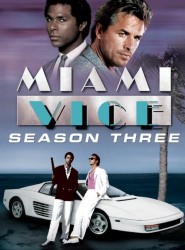
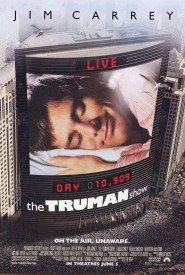
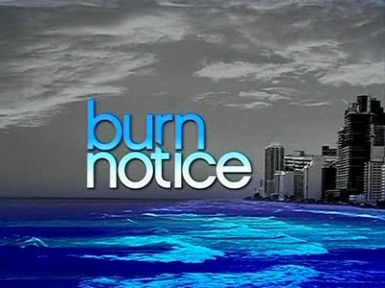


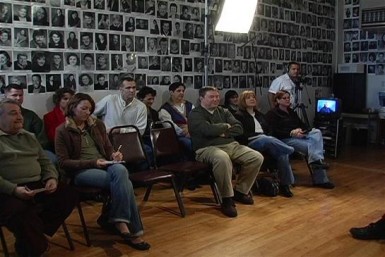
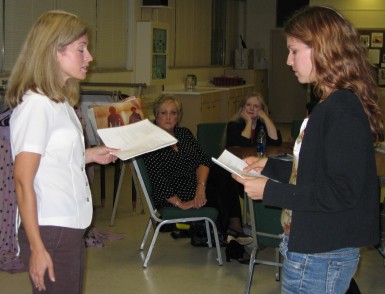

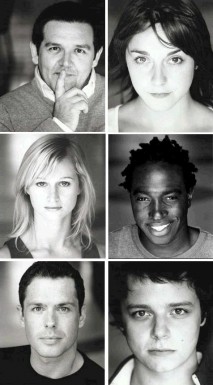
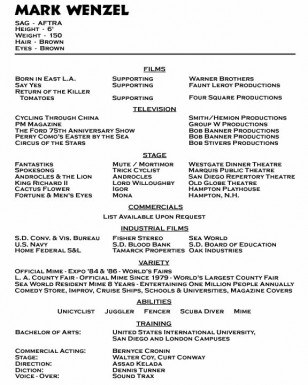
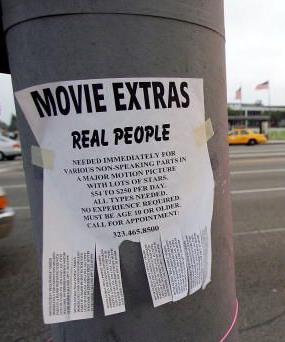











Gus says:
Great interview, Doug! Very informative. Ellen Jacoby sounds like a pro. After meeting her, were you more, or less optimistic about Miami’s acting scene?
Posted on 01/11/2008 at 4:40 PM